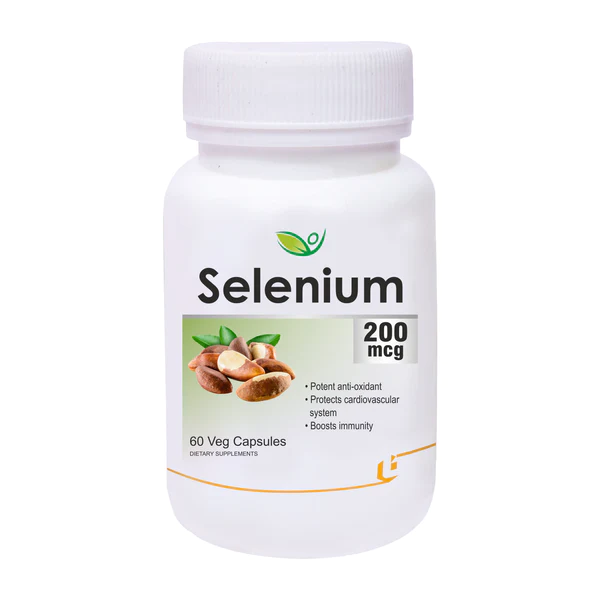
The nutraceutical industry is thriving as more people focus on health and wellness. Within this sector, contract manufacturing plays a pivotal role, offering companies the ability to produce high-quality products without investing in manufacturing infrastructure. This article explores the dynamics of contract manufacturing for nutraceutical selenium, vitamins, covering its benefits, challenges, and key considerations for companies seeking to produce these essential supplements.
Understanding Selenium and Its Importance
Selenium is a trace mineral essential for human health, known for its role in supporting immune function, DNA synthesis, and antioxidant protection. It is found in foods like Brazil nuts, seafood, and organ meats, but deficiencies can occur due to various factors, including poor dietary intake and soil depletion. Selenium supplements have gained popularity as a way to ensure adequate levels of this crucial nutrient.
Contract Manufacturing in the Nutraceutical Industry
Contract manufacturing involves outsourcing production to a third-party manufacturer that specializes in specific products, such as nutraceuticals. This approach allows companies to focus on product development, marketing, and distribution, while the contract manufacturer handles the manufacturing process, from sourcing raw materials to packaging and quality control.
Benefits of Contract Manufacturing for Selenium Supplements
Contract manufacturing offers several advantages for companies producing selenium supplements:
- Cost Efficiency:
Contract manufacturing reduces the need for significant capital investment in manufacturing facilities, equipment, and labor. This cost-efficient model allows companies to allocate resources to other critical areas, like research and marketing.
- Access to Expertise:
Contract manufacturers specialize in nutraceutical production and have in-depth knowledge of industry regulations and quality standards. This expertise ensures that selenium supplements are produced with high quality and compliance with regulations.
- Flexibility and Scalability:
Companies can scale production based on demand without being tied to fixed costs. This flexibility is beneficial for companies navigating market fluctuations and seasonal variations.
- Quality Assurance and Compliance:
Contract manufacturers adhere to rigorous quality standards, such as Good Manufacturing Practices (GMP), ensuring that selenium supplements meet safety and quality requirements. This reduces the risk of product recalls and enhances brand reputation.
- Reduced Time to Market:
Contract manufacturers can streamline production processes, allowing companies to bring selenium supplements to market faster. This agility is crucial in a competitive industry where speed to market can provide a significant advantage.
Challenges in Contract Manufacturing for Selenium Supplements
While contract manufacturing offers numerous benefits, it also presents certain challenges that companies must address:
- Quality Control:
Ensuring consistent quality across batches can be challenging when relying on a third-party manufacturer. Companies must establish robust quality control mechanisms to maintain product integrity and avoid variations.
- Intellectual Property Risks:
Sharing proprietary formulations and processes with a contract manufacturer can pose intellectual property (IP) risks. Companies must implement confidentiality agreements and legal protections to safeguard their IP.
- Communication and Collaboration:
Effective communication is essential to ensure smooth collaboration with the contract manufacturer. Miscommunication can lead to production delays or quality issues.
- Regulatory Compliance:
Selenium supplements are subject to strict regulations. Companies must ensure that the contract manufacturer complies with all relevant regulations to avoid legal complications.
- Supply Chain Disruptions:
Contract manufacturing introduces additional layers to the supply chain, increasing the risk of disruptions. Companies must plan for contingencies to mitigate the impact of supply chain interruptions.
Key Considerations for Contract Manufacturing of Selenium Supplements
To successfully leverage contract manufacturing for selenium supplements, companies should consider the following factors:
- Selecting the Right Manufacturer:
Choosing a reputable contract manufacturer with experience in producing nutraceuticals is crucial. Companies should assess the manufacturer’s certifications, track record, and reputation for quality.
- Establishing Clear Agreements:
A detailed contract outlining roles, responsibilities, quality standards, and timelines is essential. This agreement should include provisions for confidentiality, IP protection, and dispute resolution.
- Implementing Quality Control Measures:
Companies should work with the contract manufacturer to establish robust quality control processes. This includes regular audits, inspections, and testing to ensure product consistency and safety.
- Maintaining Open Communication:
Effective communication is key to a successful contract manufacturing relationship. Companies should establish clear communication channels and collaborate closely with the manufacturer to address issues promptly.
- Planning for Contingencies:
Companies should have contingency plans in place to address supply chain disruptions or other unforeseen challenges. This reduces the risk of production delays and ensures consistent product availability.
Conclusion
Contract manufacturing provides a practical and cost-effective solution for companies producing selenium supplements. By outsourcing production to specialized manufacturers, companies can focus on their core competencies while ensuring high-quality products. However, careful planning, clear agreements, and robust quality control measures are essential to overcome the challenges associated with contract manufacturing.
With the right approach, companies can benefit from the flexibility, cost efficiency, and scalability that contract manufacturing offers, enabling them to bring high-quality selenium supplements to market efficiently. This not only supports the company’s business goals but also helps meet the growing demand for nutraceutical products that contribute to health and wellness.
